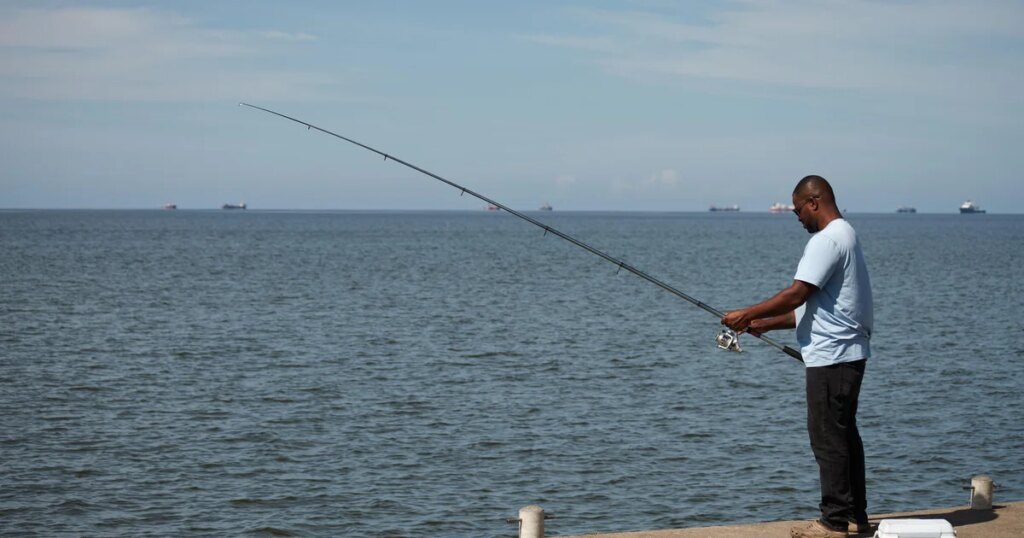The U.S. Embassy in Trinidad and Tobago has issued a warning for American citizens to steer clear of U.S. government facilities in the islands, amidst escalating tensions between the U.S. and Venezuela. This alert follows reports of threats against U.S. citizens, coinciding with increasing hostilities in the region linked to military operations against suspected drug traffickers. It comes ahead of the Diwali holiday, when local authorities are urging enhanced vigilance among residents and visitors alike.
| Article Subheadings |
|---|
| 1) U.S. Embassy Issues Security Alert for American Citizens |
| 2) Background of Rising Tensions in the Region |
| 3) Implications for Local Communities |
| 4) Recent Military Actions and Their Consequences |
| 5) Government Response and Safety Measures |
U.S. Embassy Issues Security Alert for American Citizens
The U.S. Embassy in Trinidad and Tobago has heightened its security measures, warning American citizens to avoid American government facilities during the upcoming holiday weekend. This alert was prompted by reported threats against U.S. citizens in the Caribbean, with officials suggesting a correlation to ongoing geopolitical tensions, specifically between the U.S. and Venezuela. Roger Alexander, the minister of homeland security in Trinidad and Tobago, articulated this concern, affirming that the embassy is responding to credible threats and advising vigilance and caution amongst its citizens and visitors.
Background of Rising Tensions in the Region
The relationship between the U.S. and Venezuela has been fraught with animosity, particularly over the last several months. Tensions have escalated due to military actions in the Caribbean aimed at combatting drug trafficking. As reported, well-documented military strikes have heightened fears among local populations and U.S. nationals, sparking a series of adverse responses from both the U.S. government and Venezuelan authorities. Venezuelan territory is positioned dangerously close to Trinidad, intensifying apprehensions about regional security and the safety of citizens.
Implications for Local Communities
The repercussions of the ongoing tensions are being felt deeply within local communities of Trinidad and Tobago. Many residents are anxious as they search for clarity in the wake of ongoing threats and military activity. This anxiety is compounded by the tragic news of local fishermen believed to be killed during a U.S. military operation, which has magnified fears among local fishermen and their families. The emotional impact on communities riddled with uncertainty about safety has led some to question the implications of U.S. military strategy in the region.
Recent Military Actions and Their Consequences
This period has been marked by a notable uptick in military operations, with U.S. forces conducting strikes against vessels suspected of trafficking illegal drugs. The most recent incident involved a submarine allegedly carrying significant quantities of fentanyl and other narcotics. Reports indicate at least six such attacks have occurred in the region since last month, resulting in 19 fatalities. U.S. officials are viewing these traffickers through a lens of national security, framing them as “unlawful combatants,” thus justifying military responses.
Government Response and Safety Measures
In light of these developments, Trinidad and Tobago authorities are taking proactive measures to bolster safety and mitigate potential threats. Increased security protocols have been put in place as local officials coordinate with U.S. counterparts regarding rising dangers and ongoing military operations. Although specific details remain undisclosed, officials like Alexander have acknowledged the urgency for community safety, particularly as citizens prepare for festivities, such as the upcoming Diwali celebrations.
| No. | Key Points |
|---|---|
| 1 | The U.S. Embassy warns citizens to avoid government facilities in Trinidad and Tobago due to threats in the region. |
| 2 | The alert emerges amid rising tensions between the U.S. and Venezuela over military campaigns against drug trafficking. |
| 3 | Community concerns grow as local fishermen are believed to be casualties of U.S. military operations. |
| 4 | Local authorities are enhancing security measures to address threats, especially ahead of the Diwali holiday. |
| 5 | The Trump administration characterizes drug traffickers as ‘unlawful combatants,’ justifying military actions. |
Summary
The current alert issued by the U.S. Embassy serves as a critical reminder of the geopolitical tensions affecting not just the diplomatic but also the social landscape of Trinidad and Tobago. As local authorities adapt to the evolving threats posed by military operations against drug trafficking, the impact on community safety and morale remains a pivotal area of concern. The continuous strife between the U.S. and Venezuela, accompanied by military interventions, accentuates the need for heightened awareness among all parties involved, facilitating a dialogue on regional security in this fragile time.
Frequently Asked Questions
Question: What prompted the U.S. Embassy’s warning to American citizens in Trinidad and Tobago?
The warning was issued in light of credible threats against U.S. citizens, which officials believe are associated with ongoing tensions between the U.S. and Venezuela.
Question: How have local communities reacted to the heightened tensions in the region?
Local communities, particularly fishermen and their families, are deeply affected by the fear and uncertainty stemming from recent military actions and threats to safety.
Question: What are the implications of military actions conducted by the U.S. in Caribbean waters?
The U.S. military operations target illegal drug trafficking but have resulted in fatalities among local populations, raising concerns over collateral damage and the overarching impact on regional security.
